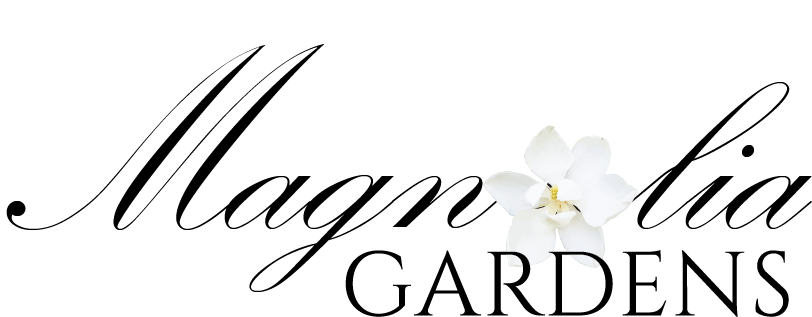A Guide to Choosing the Right Adult Family Home (AFH) in Washington
I’m Julie and I’ve been in the senior care industry for most of my life and when it comes to senior care, one decision can change everything. Choosing the right adult family home in Washington can mean the difference between a loved one who merely survives—and one who thrives. With hundreds of options and a wide range of quality, it’s vital to understand what truly matters. This isn’t just another checklist. It’s your essential guide to choosing care that feels like family.
What Is an Adult Family Home?
In Washington state, an Adult Family Home (AFH) is a licensed residential home that cares for up to six adults (or eight with special approval). These homes provide room, board, personal care, laundry, and supervision—all within a comforting, home-like atmosphere.
As explained in our article, What Are Vancouver Adult Family Homes? AFHs offer a compassionate, personalized approach, with private or semi-private rooms, communal areas, and nurturing caregivers. Read it here:
https://www.magnoliasch.com/blog/what-are-vancouver-adult-family-homes
Why Choose a Small-Scale Setting?
Small-scale homes offer unique benefits that larger facilities often can’t match:
Personalized Attention
Low resident-to-staff ratios allow caregivers to truly know residents’ routines, preferences, and needs. In our blog, we highlight how one-on-one attention in AFHs ensures residents feel valued and connected.Homelike Ambiance
Instead of impersonal hallways and clinical settings, AFHs use real living rooms, kitchens, and gardens. Magnolia Gardens excels in creating this warm, familiar setting.Tight-Knit Community
Shared meals, meaningful activities, and personal relationships foster companionship. Our blog notes how this combats isolation and builds a sense of family.
Key Selection Criteria
Licensing and Regulations
Confirm the home is licensed by the Washington State Department of Social and Health Services (DSHS). Each AFH must meet regulations outlined in RCW 70.128.
https://www.dshs.wa.gov/altsa/residential-care-services/adult-family-homeStaff Credentials
Ask about caregivers’ certifications (e.g. caregiver training, CNAs, LPNs, RNs) and ongoing training. Look for expertise in dementia, diabetes, wound care, and hospice support.Services and Staffing Ratios
Ensure the home offers a broad spectrum of support: assistance with daily living activities, medication management, physical therapy, memory care, and hospice, (like those offered by Magnolia Gardens.)
https://www.magnoliasch.comEnvironment and Lifestyle
Visit in person. Evaluate living spaces, cleanliness, outdoor amenities like gardens, and community areas. Observe how residents are engaged during meals or activities.Family Feedback and Transparency
Read reviews on platforms like Google, Caring.com, or A Place for Mom. Ask for references. Look for consistent praise for compassionate care, communication, and smooth transitions.Pricing and Payment Options
AFHs often accept private pay, Medicaid, and long-term care insurance. Washington State – Average Pricing for senior care at an AFH.
Shared Room: Starts around $4,500/month
Private Room: Typically starts at $5,000/month or more
Source: Adult Family Home Council (AFHC) FAQsA broader range reported in statewide surveys: $3,800 to $6,750/month, with the average clustering around $5,750/month
Source: Room & Care – Adult Family Homes in Washington
Why Small Is Better: A Unique Perspective
Adult Family Homes, such as Magnolia Gardens, offer what can be described as a “micro-community” model, which this video explains so well. These environments prioritize emotional well-being as much as physical care. The intimate scale supports:
Deep, trusting relationships between caregivers and residents
Flexible, resident-centered daily routines
Reduced stress, which is linked to better physical and mental health outcomes
Seamless adaptation to evolving care needs, from minimal assistance to end-of-life hospice care
This setting helps seniors maintain dignity and comfort while receiving the individualized support they deserve.
Magnolia Gardens: A Case Study in Excellence
Licensed for 6 residents per home setting (we have two homes), with a high caregiver-to-resident ratio compared to large assisted living facilities.
Comprehensive services including ADLs, wound care, dementia care, therapy coordination, and hospice.
Home-like environment with private bedrooms and bathrooms, garden paths, and shared meals.
Positive reviews from families praising the staff’s communication and compassionate care.
Transparent pricing aligned with regional averages.
Visit Magnolia Gardens online:
https://www.magnoliasch.com
Credible Sources We Used
Washington DSHS Guide to Choosing an Adult Family Home
This official guide explains the licensing process, what to look for during visits, and how to compare homes.
https://www.dshs.wa.gov/sites/default/files/publications/documents/22-707.pdfAdult Family Home Council of Washington
The council’s resources and FAQs provide insights into the benefits of small care settings.
https://adultfamilyhomecouncil.orgMagnolia Gardens Blog – What Are Vancouver Adult Family Homes?
Provides context on what sets adult family homes apart in Vancouver, Washington.
https://www.magnoliasch.com/blog/what-are-vancouver-adult-family-homesSilverAgeCare.org – Long-Term Care Options in Washington
Offers details on Medicaid, private pay, and VA benefit eligibility in adult family homes.
https://www.silveragecare.orgCaring.com – AFH Reviews and Cost Comparisons
Helps compare local providers and read verified reviews.
https://www.caring.com/local/adult-family-homesAARP – Guide to Choosing Senior Living Options
Offers a broader framework for evaluating assisted living and small residential care settings.
https://www.aarp.org/caregiving/basics/info-2020/assisted-living-facilities.html

